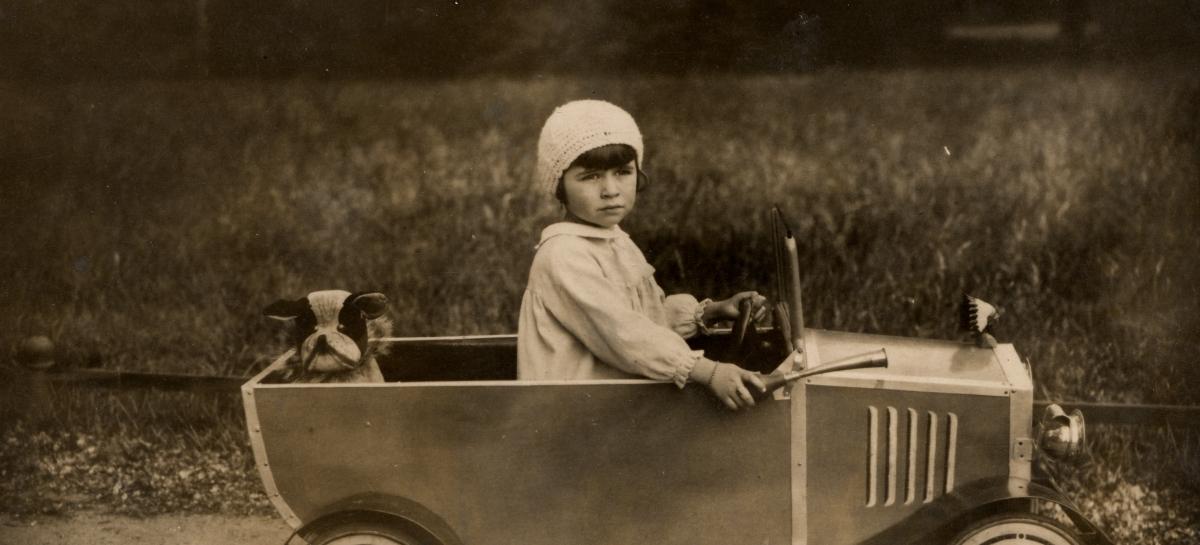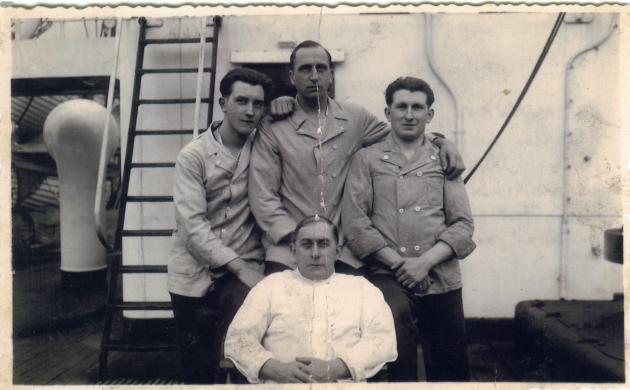Zysia Pressman, his wife Hinda and their two children, Hermann and Shulamit (Sonia) lived in Germany. Zysia and Hinda originally came from Poland and had built up a successful clothing business in Berlin. When Hitler rose to power, the eighteen-year-old Hermann Pressman decided to flee the regime. On May 9, 1933, he traveled to Antwerp where he was able to stay with one of his cousins who had a shoemaker's store in Deurne, near Antwerp. After quite some effort he eventually convinced his parents to join him in Antwerp. The family settled in Antwerp and the five-year-old Sonia went to pre-school kindergarten.
Unfortunately, setting up a new business in Antwerp came to nothing. Moreover, the Belgian authorities were anything but pleased with the arrival of Jewish refugees in the country. German refugees were still allowed in, but Jews of Polish origin were neither granted residence nor work permits. Hermann’s repeated attempts to get hold of a permanent residence permit for the family were unsuccessful and even the intercession of Mayor Camille Huysmans was of no avail. The Department of Belgian National Security executed an order of deportation but the Pressmans left before it could be served on them.
The family was able to secure visas for the United States on their Polish passports because they had sufficient funds so they would not become public charges in the United States. On April 20, 1934, they embarked on the Red Star Line ship SS Westernland bound for New York.
Sonia Pressman Fuentes studied law in the United States and had a 36-year career as an attorney and executive with U.S. government agencies and major corporations. Together with Betty Friedan and others, she founded the National Organization for Women (NOW). She has been a feminist activist for over fifty years, writing and speaking on women’s rights throughout the U.S. and the world. She was the first woman attorney in the Office of the General Counsel at the Equal Employment Opportunity Commission (EEOC), an agency that implements a law prohibiting, among other things, gender discrimination in employment. In 1999 she published a moving memoir, which naturally covered her family’s emigration (Eat First -- You Don't Know What They'll Give You, The Adventures of an Immigrant Family and Their Feminist Daughter). She was able to draw on the diary that her brother Hermann had kept during his stay in Antwerp. Besides being an interesting account of the day-to-day life of a young Jewish man in Antwerp, the friends he had and the evenings out with them, it also covers the seemingly never-ending attempts to secure a residence permit. He describes the unpleasant medical exams he had to undergo before being allowed to leave on the Red Star Line and the constant fear of being rejected at the last moment.
The fact that Sonia gave us this diary led us to the idea of looking into the archives of the Aliens Police. In the Public Records Office in Brussels we found a comprehensive dossier on the Pressman family that the Belgian Security Service had put together: the visa applications, the intercession of the mayor of Antwerp and the deportation order by the Department of Belgian National Security. The fact that the dossier contains numerous passport photos has allowed us to reconstruct and document the life of the Pressman family in Belgium. Moreover, Sonia still has photos in her possession from the Berlin years as well as from their time in Antwerp, which includes the kindergarten years and, last but not least, a photo of the family on the deck of the Westernland. We interviewed Sonia Pressman Fuentes to round off what is a wonderful story about how dramatic events in world history and personal experiences can merge together through a Red Star Line story.



